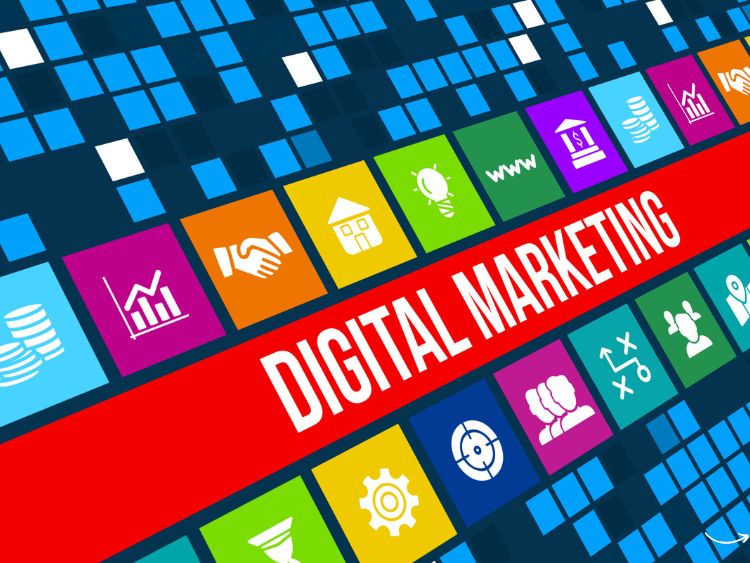In today’s fast-paced world, the automotive industry isn’t just about cars and engines anymore. It’s a digital battleground where the right marketing strategies can make or break a business. Welcome to the era of automotive digital marketing, where clicks, likes, and shares are as valuable as horsepower and torque. But what exactly is automotive digital marketing? And how can it rev up your business? Buckle up, because we’re about to take a deep dive into this transformative topic.
What is Automotive Digital Marketing?
Automotive digital marketing refers to the use of online platforms and technologies to promote and sell vehicles, parts, and services. It encompasses a range of tactics, including search engine optimization (SEO), pay-per-click (PPC) advertising, social media marketing, email marketing, and content marketing. Essentially, it’s all about reaching potential customers where they spend most of their time – online.
Key Components of Automotive Digital Marketing
- Search Engine Optimization (SEO): Optimizing your website to rank higher in search engine results.
- Pay-Per-Click (PPC) Advertising: Buying traffic through paid ads on search engines and social media platforms.
- Social Media Marketing: Leveraging platforms like Facebook, Instagram, and Twitter to engage with customers.
- Email Marketing: Sending targeted email campaigns to nurture leads and retain customers.
- Content Marketing: Creating valuable content to attract and engage your audience.
The Importance of SEO in Automotive Digital Marketing
Search Engine Optimization (SEO) is the backbone of any successful digital marketing strategy. It ensures your dealership or auto service appears at the top of search engine results when potential customers are looking for products or services you offer.
SEO Best Practices for the Automotive Industry
- Keyword Research: Identify and use relevant keywords that potential customers are searching for. Terms like “best car deals,” “affordable auto repair,” and “new SUV sales” can drive traffic to your site.
- On-Page SEO: Optimize your website’s content, meta descriptions, and titles to improve search engine rankings.
- Local SEO: Optimize for local searches by claiming your Google My Business listing and encouraging customer reviews.
- Technical SEO: Ensure your website is mobile-friendly, fast, and easy to navigate.
The Power of Pay-Per-Click (PPC) Advertising
PPC advertising allows you to place ads on search engines and social media platforms, paying only when someone clicks on your ad. This can be a highly effective way to drive targeted traffic to your website.
Tips for Successful PPC Campaigns
- Target the Right Keywords: Use specific, long-tail keywords to attract qualified leads.
- Write Compelling Ad Copy: Craft engaging and relevant ad copy that encourages clicks.
- Optimize Landing Pages: Ensure your landing pages are relevant to the ad and optimized for conversions.
- Monitor and Adjust: Regularly review your campaign performance and make necessary adjustments.
Social Media Marketing: Engaging with Your Audience
Social media platforms are not just for sharing cat videos and memes; they’re powerful tools for reaching and engaging with your audience. Platforms like Facebook, Instagram, and Twitter offer unique opportunities to build relationships and foster loyalty.
Effective Social Media Strategies
- Regular Posting: Keep your audience engaged by posting regularly.
- Visual Content: Use high-quality images and videos to grab attention.
- Interactive Content: Encourage interaction through polls, quizzes, and live videos.
- Customer Engagement: Respond to comments and messages promptly to build trust and loyalty.
Email Marketing: Nurturing Leads and Retaining Customers
Email marketing remains one of the most effective digital marketing strategies. It allows you to reach potential customers directly in their inbox and nurture them through the sales funnel.
Best Practices for Email Marketing
- Segmentation: Divide your email list into segments based on customer behavior and preferences.
- Personalization: Use personalized subject lines and content to increase engagement.
- Automated Campaigns: Set up automated email sequences to nurture leads and re-engage inactive customers.
- Performance Tracking: Monitor your email metrics to see what’s working and what needs improvement.
Content Marketing: Creating Value for Your Audience
Content is king, and in the automotive industry, it can be a powerful tool to attract and retain customers. By providing valuable content, you can establish your brand as an authority and build trust with your audience.
Types of Content to Create
- Blog Posts: Write informative articles about car maintenance, buying guides, and industry news.
- Videos: Create videos showcasing new models, how-to guides, and customer testimonials.
- Infographics: Use infographics to present data and tips in an easily digestible format.
- E-books and Guides: Offer downloadable resources that provide in-depth information on specific topics.
FAQs
What is the primary goal of automotive digital marketing?
The primary goal of automotive digital marketing is to attract, engage, and convert potential customers by leveraging online platforms and technologies. This involves creating and executing strategies that drive traffic to your website, increase brand awareness, and generate leads.
How can SEO benefit my automotive business?
SEO can significantly benefit your automotive business by improving your website’s visibility on search engines. Higher rankings mean more traffic, which can lead to increased leads and sales. Additionally, SEO helps establish your brand as an authority in the industry, fostering trust and credibility with potential customers.
What are some effective PPC strategies for automotive marketing?
Effective PPC strategies for automotive marketing include targeting long-tail keywords, writing compelling ad copy, optimizing landing pages for conversions, and continuously monitoring and adjusting your campaigns based on performance data. These strategies ensure you reach the right audience and maximize your return on investment.
Why is social media marketing important for the automotive industry?
Social media marketing is crucial for the automotive industry because it allows businesses to connect with customers on a personal level. By engaging with your audience through regular posts, interactive content, and prompt responses, you can build strong relationships, increase brand loyalty, and drive more sales.
How can email marketing improve customer retention?
Email marketing improves customer retention by keeping your brand top-of-mind with your audience. Through personalized and segmented email campaigns, you can nurture leads, provide valuable information, and offer exclusive deals and promotions. This helps build long-term relationships and encourages repeat business.
Conclusion
In the rapidly evolving automotive industry, digital marketing is no longer optional – it’s essential. By implementing effective automotive digital marketing strategies, you can drive traffic, generate leads, and boost sales. From SEO and PPC to social media and email marketing, each component plays a vital role in your overall success. So, whether you’re a dealership looking to increase sales or an auto repair shop aiming to attract more customers, it’s time to embrace the digital revolution and steer your business toward a prosperous future.







